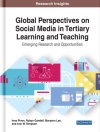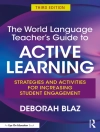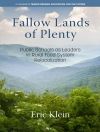This is the fifth book of a series recording the highlights of the international conferences held annually by the Academy of Professional Dialogue under the title The World Needs Dialogue! In 2022 the theme was Dialogue as Story. This refers to the subtle and unnoticed way people make sense of the things they encounter by forming them into a story. Discord between various versions results in fragmented thinking and counter-productive activity. Together checking and updating our stories is a primary function of Dialogue. Some 315 participants from 24 countries actively explored this in plenary presentations and break-out Participatory Dialogues in this online three-day event.
Inhaltsverzeichnis
Contents
Trustee’s Foreword vii
Editor’s Preface xi
Introduction xiii
PART ONE
Plenary Conference Sessions
Dialogue as Story: Me 1
Peter Garrett
Dialogue as Story: Us 7
Jane Ball
Dialogue as Story: The Organization 15
Harold Clarke
Dialogue as Story: The World 25
William Isaacs
PART TWO
The Original Paper: Dialogue As Story 31 Peter Garrett
PART THREE
Participatory Dialogues Co-facilitated by Members of the Academy
Section One
Participatory Dialogues: Me (Self) 47
How Does Our Inner Dialogue, with Our Many Identities, 49 Shape Our Outer Dialogue with Others?
Tzofnat Peleg-Baker and Justin Wooten
No Healing, No Development 53
Bernhard Holtrop
Violent Crime Changes People: How Does One Journey from Harm to Healing? 57
Amber Leake and Emily Sattie
What Makes Us Who We Are? What Situations Make Us Aware of Our Identity? 65
Elisabeth Razesberger and Tzofnat Peleg-Baker
Section Two
Participatory Dialogues: Subcultural Groups (Us) 69
Should Police Officers after the Wrongful Death of a Citizen Have 71 Qualified Immunity?
Jennie Amison and Sharon Burgess
With Different Cultural Experiences, How Do You See Yourself Adapting to Society? 77
Qingmian Chen and Elisabeth Razesberger
What Are Subcultures and How Do They Affect Organizations? 83 Peter Garrett and Thomas Kö
ttner
Section Three
Participatory Dialogues: Organizations 89
How Does Dialogue Facilitate Mutual Humanity and Overcome 91 Power Dynamics Within Systems?
Djuanwa Cooke and Leo Hylton
When Does an Offender Stop Being an Offender? 97
Matt Burgess
How Do We Put Dialogue to Work in our Job and Profession? 105
Kati Tikkamäki and Hanne Mäki-Hakola
Is There a Role for Dialogue in the Learning Process? 111
S
usan Williams and Shaketta Thomas
Section Four
Participatory Dialogues: The World (Society) 115
What Is the Inherent Privilege of Being a Woman? 117
Helena Wagener and Jane Ball
How Can We Bridge the Intergenerational Gap? 125
Jane Ball and Matthew Whibley
How Do the Humanist, Spiritual and Religious Stories 131 We Carry Help Us to Make Ultimate Meaning in Life?
Tom O’Connor and Nancy Dixon
Section Five
Participatory Dialogues: Facilitation 137 What is the Role of Silence in Dialogue? 139
Leo Hylton, April Hayes, Garin Samuelsen
How Do We Illuminate and Dismantle Power Dynamics as Dialogue Facilitators? 143
Loshnee Naidoo and Shakita Bland
How Does Dialogue Allow You to Shift Your Perspective? 149
Nancy M. Dixon and Teddy Gardner
Creative Capacity Building: How Can Our Imagination Craft Space for The World? 155
Johann Botha and Jackie Elliott
What Can We Learn by Thinking of Dialogue as Exploring Intuitions Together? 159
Klas Orsvärd and Bernhard Holtrop










![Cover von Sarah B. B. (University of Central Florida, Orlando, FL, USA) Bush & Kristin L. L. (Bellarmine University, USA) Cook: Simplifying STEM [6-12] Cover von Sarah B. B. (University of Central Florida, Orlando, FL, USA) Bush & Kristin L. L. (Bellarmine University, USA) Cook: Simplifying STEM [6-12]](https://static.worldofdigitals.com/thumb_webp/414/9781071932414.webp)

